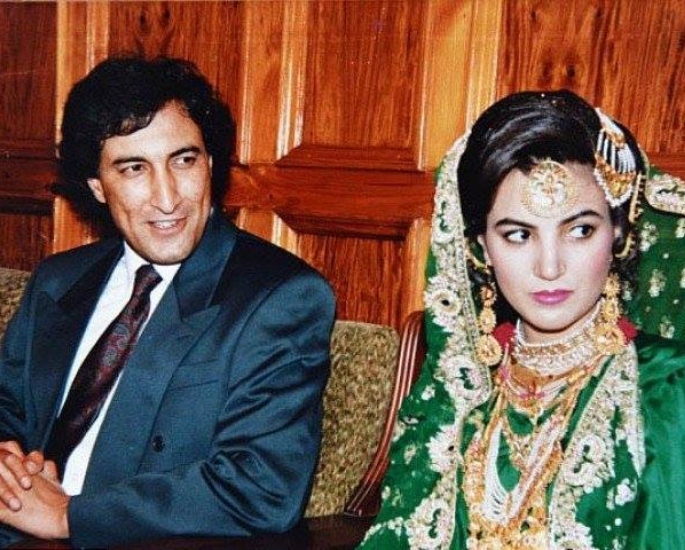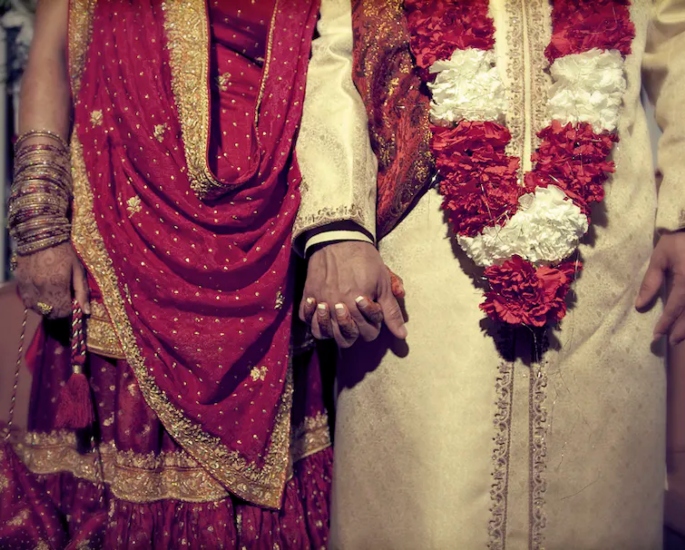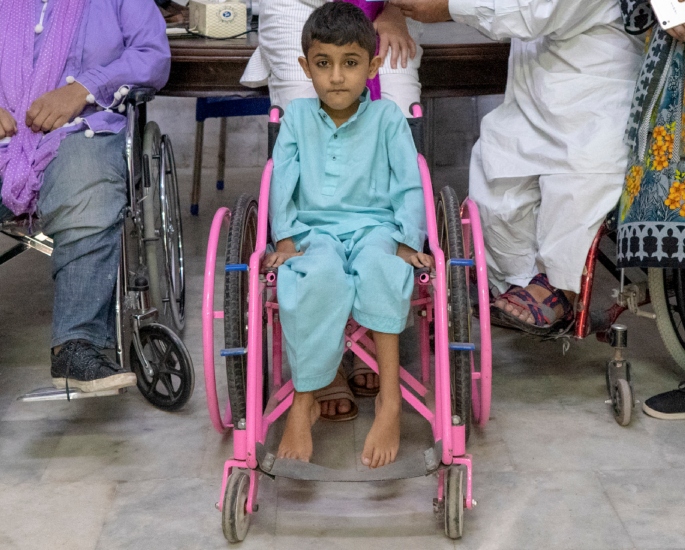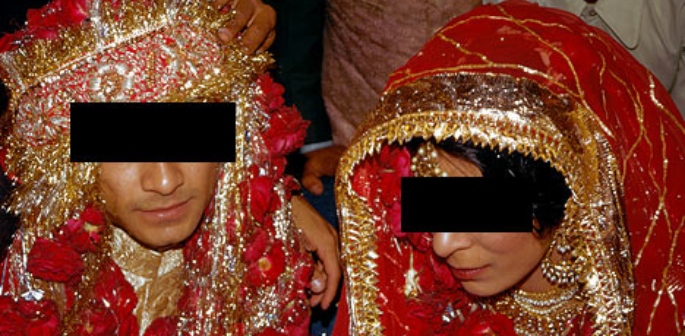Cousin marriages by love are also present in Pakistan
The strong historic prevalence of cousin marriages for Pakistani families flags up different priorities as it continues to remain a popular trend.
Just like many countries in South Asia, Pakistan values marriage as a significant aspect of life for both the individuals concerned and wider families.
Wedding celebrations can be considered a business arrangement itself and are responsible for the incomes of millions of Pakistanis.
From looking out for the best interests of the groom, the wealth of families, and assets such as land ownership, everything is orchestrated for families to remain politically sound and satisfied.
Typically in Pakistan, before a marriage can take place, cultural values, family status, and physical attributes of the bride or groom are immediately questioned.
However, before caste, creed, and appearance come into play, there is one question that roams the minds of potential bride and groom: will they be marrying their cousin or not?
At that stage, individuals may have an internal battle with themselves or with their family, questioning the support and concern of cousin marriages.
DESIblitz will be digging deeper into the trends of cousin marriages among Pakistani people and the reasons why they still may be popular today.
How did Cousin Marriages Become a Part of Pakistani culture?

Marriages kept within families, and between cousins have existed in Pakistan for many generations. This is a common practice globally in many cultures and countries.
But, it is far more common in Pakistan than in any other country, with a high percentage marrying their first cousins.
According to BMC Women’s Health data, Pakistan has one of the highest rates of cousin marriages at 65%.
Contrastingly, many sub-sects within Indian cultures prohibit marriages among cousins.
For example, members of different castes have strictly made inter-cousin marriage a taboo subject and actively discourage it.
Under the Hindu Marriage Act 1955, if certain individuals from a specific faith want to marry a second cousin, they can do so under the Special Marriage Act.
However, personal Hindu law does not permit cousin marriages.
In Pakistani households, marriage inside the family assures the safety of traditions, as well as the money or inheritance remaining within the family.
Furthermore, because the girl has dual or multiple relationships with her in-laws, it is thought that if she remains within the family, she would care for her husband well and with total commitment.
Parents of the girls assume that if their daughters marry inside the family, they will treat them properly.
The likelihood of meeting a possible partner in the past was modest since education and employment rates were lower in rural towns and villages.
Therefore, it makes sense to marry a cousin as there weren’t many other options.
Despite the differing opinions on inter-family marriages within South Asia, they remain very prominent in Pakistani households and the Pakistani diaspora across the world.
At least one generation within the diaspora at some point has allowed cousin marriages.
The patriarchal structure of Pakistan strictly adheres to orthodox cultural norms – this notion remains intact for some Pakistani families outside of the country too.
Despite the increase of more liberal, and wealthy households in Pakistani communities, families still may not favour marriage by choice.
They may still opt for cousin marriages, or at least arranged marriages.
It is interesting to note the strong emphasis placed on wealth, upholding the bloodline, and a strong attachment to keeping things within the family for Pakistanis.
As a result, this is telling of how cousin marriages have been upheld as a significant component of Pakistani culture: not by religion but by strong cultural norms.
Arranged Cousin Marriage or Love-Cousin Marriage?

Traditionally, the perspective of inter-family marriages focuses on the arranged marriage route – families orchestrate the events.
However, cousin marriages have the possibility of being arranged by choice as a love-cousin marriage.
Arranged marriages are as discussed a by-product of cultural tradition as well as patriarchal norms that enforce cousin marriages, in certain areas.
Yet, cousin marriages by love are also present in Pakistan.
Before that matter of marriage is unfolded, it is important to consider the socialisation of cousins in Pakistani families.
The taboo nature of cousin marriages often trickles down into younger generations.
This is seen among Pakistani families who still marry within families.
Patriarchal norms and culture go hand-in-hand here, with Pakistani men in the diaspora often exploring sex, love interests and dating outside of the family realm.
But when it boils down to commitment, they settle down and marry their cousins to meet family expectations.
Marriages in this instance are not just limited to first cousins only. It can go as far as second or third cousins.
The way cousins interact within the Pakistani culture can also raise many questions – whether it’s celebratory occasions or significant events such as weddings.
If love has no boundary, then cousin marriage is only a subject of cultural appropriation.
What is the Impact of a Cousins Marriage?

Historically, cousin marriage was no surprise among monarchs of Europe, but that does not bend the rules of medical science.
Various medical reports do not encourage marriages among cousins.
While these scientific findings are ignored and disposed of, their outcomes are unforgiving for the parents and offspring.
One of the most common genetic disorders seen in Pakistan is the inherited blood disorder, Thalassemia, which keeps red blood cells from absorbing oxygen.
Birth defects have been reported numerous times, all related to cousin marriages.
Hereditary diseases and their probability to appear in the offspring are amplified.
According to a 2017 report on genetic mutations in Pakistan, the “heterogeneous composition” of Pakistan’s population, including high levels of “consanguinity” has led to a prevalence of genetic disorders.
The report introduces a Pakistan “genetic mutation” database, which identifies and tracks different types of mutations and the disorders they lead to.
According to the database, more than 1000 mutations have been reported in 130 different kinds of genetic disorders found in Pakistan.
Huma Arshad Cheema, a pediatrician specialising in genetic disorders, claimed that Pakistan has a huge burden of genetic disorders due to inbreeding.
She said specific disorders can be pinpointed to particular castes, communities and tribes where intermarriage is common.
Many cases of hereditary diseases and disabilities are linked to cousin marriages due to parents coming from the same/similar gene pool.
One of the most profound impacts cousin marriage holds is strengthening of the family ties, which bond families more profoundly than anything else.
Is it fair to assume that cousin marriages are harmless despite the evidence presented by medical experts against it?
So, what does the future hold for cousin weddings in Pakistan?
Whether to support cousin weddings or not is a very subjective and individual decision.
People support these types of unions because many do not think it is ethically right to look for brides or grooms.
Medical and genetic concerns are occasionally regarded as pointless.
It almost seems as though getting tested for diseases before getting married has no place in society.
In the Pakistani home, dating and relationships before marriage are discouraged, and this is no secret. Marriages between cousins don’t always offer a solution.
Contrary to what supporters claim, first-generation cousin marriages are not acceptable regarding genetic illnesses.
Illness and disabilities of offspring are heightened between cousin marriages.
The viewpoint on cousin marriage relies on understanding the knowledge of empirical scientific facts but also taking into account cultural norms.
However, the two concepts are not compatible together – science relies on facts and culture relies on historical practices.
Among medical experts, cousin weddings are a major source of worry.
Yet, there is a belief among professionals that the medical consequences are not taken seriously by Pakistani communities.
Not only does this negatively impact future generations, but it also puts a strain on doctors who have to deal with medical complications due to this practice.
It is just a matter of time until Pakistani society recognises the risks that cousin weddings may pose.
However, due to cousin marriages being commonplace for many years, it would be impossible to erase the practice among Pakistanis.






























































